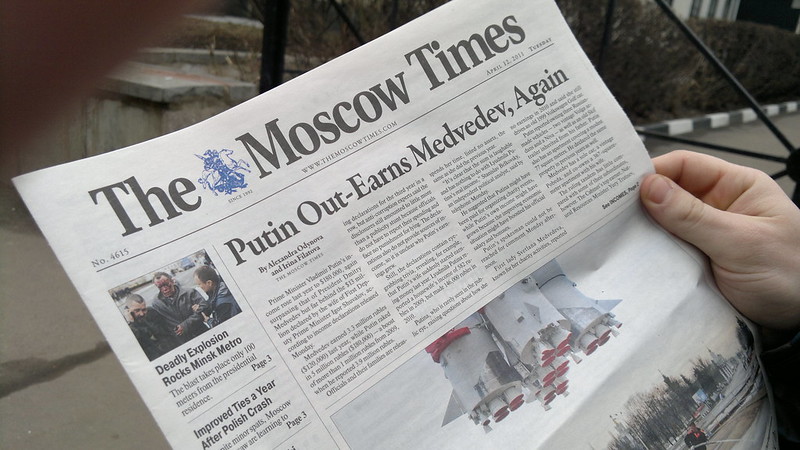“The outlet’s work is intended to discredit the decisions of Russia’s leadership in both foreign and domestic policy,” the Russia’s Prosecutor General’s Office said in a statement.
The Prosecutor alleged that The Moscow Times published “unreliable, socially significant information” intended to discredit the government’s actions concerning the war in Ukraine.
“We will continue with our work as usual—independent journalism. That is a crime in Putin’s Russia,” The Moscow Times’ founder Derk Sauer commented on his post on X.
The outlet, founded in 1992 in Russia with the mission of delivering independent, high-quality news about the country, newly emerged from the Soviet Union, to English speakers, said it refuses to “give in to this pressure.”
“We refuse to be silenced,” the outlet stated.
Reporters Without Borders (RSF), a global non-governmental organization focused on safeguarding the right to freedom of information, said it is outraged by the labeling of the MoscowTimes as an “undesirable organization.”
The European Federation of Journalists (EFJ) stressed that the latest move of the Russian authorities “is just a repressive tool in the hands of the Kremlin.”
The EFJ president Maja Sever underlined that the Kremlin’s decision “aims to censor independent voices and to criminalize the practice of independent journalism, which demonstrates the true nature of the Russian regime.”
“The Moscow Times is a sober, balanced and solid publication that scrupulously respects journalism ethics,” said Andrei Jvirblis, International Secretary of the Journalists’ and Media Workers’ Union (JMWU).
“The reason why it has been labeled an undesirable organization can therefore only be one: to further restrict its access to readers and to intimidate its contributors. It is just disgusting,” he concluded.
Russia has a long history of suppressing free speech. In 2012, it passed the “foreign agents” law, requiring NGOs, media organizations, and individuals funded from abroad and engaged in “political activity” to declare themselves as foreign agents. This law, which has been amended multiple times, now targets anyone receiving foreign funds or voicing dissenting political opinions.
In 2015, Russian President Vladimir Putin signed the “undesirable organizations” law, allowing prosecutors to shut down foreign and international organizations deemed undesirable. This legislation has been used to further clamp down on independent media, with authorities continually expanding the list of sanctioned entities.

